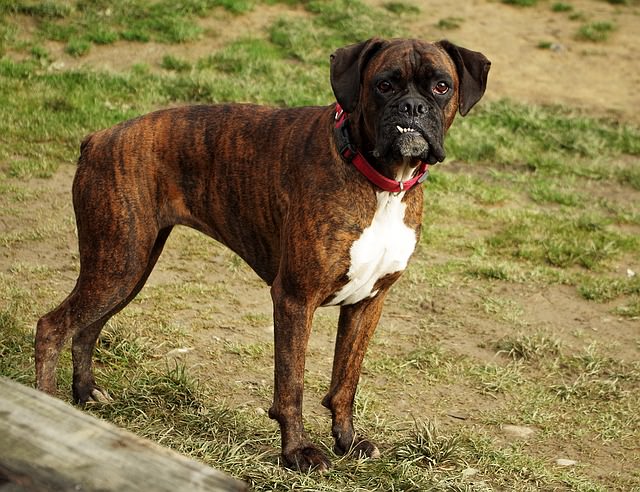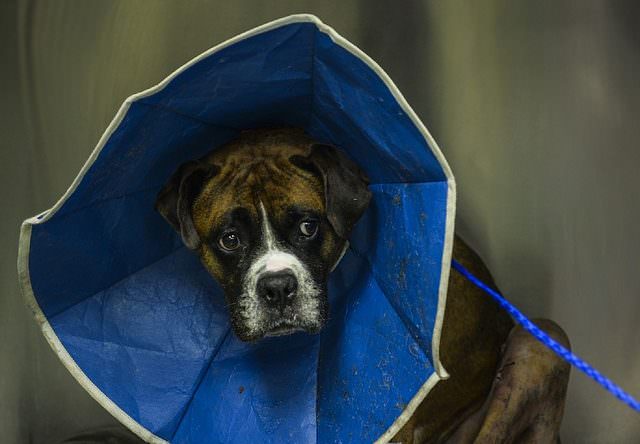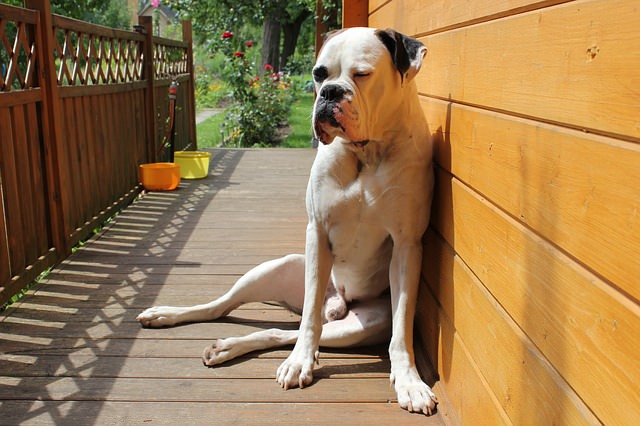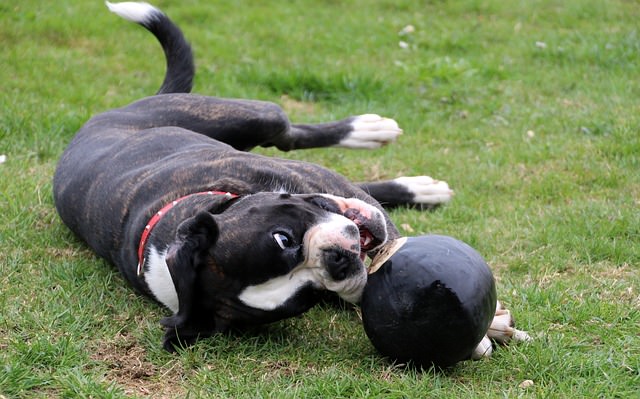Much like human teens, short-haired breeds like Boxers, Bulldogs, and Rottweilers can develop acne during their adolescent phase.
For dogs, adolescence hits around five to eight months of age and usually ends by their first birthday. During that time, they may experience painful, itchy breakouts that can lead to scarring and infection if not treated properly.
Canine acne occurs when the hair follicles become irritated – typically on the chin, lips and around the whiskers in Boxers. Veterinarians believe that acne is caused by a combination of genetics, hormones and bacterial exposure.
The pustules can cause intense itching and even pain, causing dogs to scratch and drag their face on carpeting or furniture. The irritated skin becomes abraded, allowing bacteria and infection to spread.

Acne can sometimes be mistaken for mange or ringworm, so be sure to book an appointment with your veterinarian if your adolescent Boxer begins to develop red bumps, blackheads, swelling, irritation, or pain around the chin and muzzle.
Should your Boxer be diagnosed with acne, there are many things you can do to minimize the symptoms. Benzoyl peroxide shampoos, medicated wipes, topical gels, antibiotics, and steroids all help to reduce swelling and irritation.

Try your best to prevent your dog from scratching at the affected area – even if it means the dreaded ‘cone of shame.’ Acne will not heal if the dog is continuously breaking open the pustules and re-introducing bacteria to the lesions.
If your Boxer is still dealing with acne well after he or she outgrows the adolescent phase, the problem may be related to allergies. Plastic bowls are notorious for becoming scratched and cracked. They then collect bacteria and reinfect the dog’s skin during feeding times.

High-quality stainless steel bowls are much safer for short-haired dogs prone to acne. Be sure to wash both food and water bowls often, and remember that plastic toys can also be culprits. Aside from eliminating plastic items from your Boxer’s life, be sure to wash bedding frequently and keep bathroom doors closed – toilet drinkers expose themselves to lots of acne-causing bacteria!

Should acne become excessive and unresponsive to the normal treatments and preventative measures, your Boxer may have a more serious condition like a food allergy. Additional testing may be required to get to the heart of the problem.
